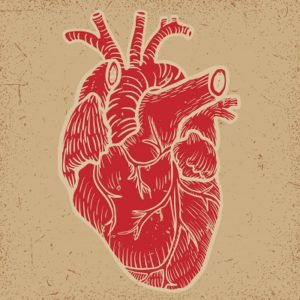 Congestive heart failure (CHF) is a life threatening condition. The heart can no longer pump enough blood through the rest of the body. This is chronic, long-term condition although it can develop suddenly.
Congestive heart failure (CHF) is a life threatening condition. The heart can no longer pump enough blood through the rest of the body. This is chronic, long-term condition although it can develop suddenly.
When people are first diagnosed they often look for the life expectancy for congestive heart failure disease. Even several years ago the life expectancy was about five years. But with recent advances in medical treatments this number has risen.
Congestive heart failure can affect the right or left side of the heart or both. As the heart pump loses efficiency blood will back up into other areas such as the liver, lower legs and lungs. The blood that has backed up is low in oxygen, which damages the tissue in these organs. This damage reduces their ability to function well.
The most common causes of congestive heart failure are high blood pressure or coronary artery disease and heart muscle damage. For instance, if you have had a heart attack and part of your heart muscle has been damaged the pump no longer works as efficiently.
Another factor in the life expectancy for congestive heart failure disease is the age at which the disease is first diagnosed. This condition is more common in people of advanced years or people who are morbidly obese, have diabetes, smoke cigarettes, abuse alcohol or use cocaine.
There are symptoms of congestive heart failure which will clue you and your doctor that there is a condition which requires evaluation and treatment. You may notice weight gain (most often from increased fluid retention) or swollen feet and ankles. Even your abdomen (stomach) can swell from fluid build up. You may lose your appetite or become nauseated and vomit.
More commonly people experience shortness of breath, difficulty sleeping without pillows to elevate their heads, fatigue, or an irregular pulse. A chronic cough and the need to urinate during the night are also symptoms.
As with other types of medical conditions there is a continuum of mild, moderate and severe symptoms. Those patients who have mild congestive heart failure may not show symptoms unless they have an infection or anemia, which also stresses the cardiovascular system.
Doctors are able give an estimation of life expectancy for congestive heart failure disease after a physical exam and testing to determine the extent of the condition. An exam may reveal an irregular heart beat, distended neck veins, an enlarged liver or swollen legs or ankles.
Blood pressure will be measured and if the doctor suspects congestive heart failure then an ultrasound will be ordered to measure the size and estimate the function.
Your life expectancy for congestive heart failure disease will increase with appropriate treatment. This treatment can include weight loss, medicating high blood pressure, decreasing salt intake, taking medication to help strengthen the heart muscle, quit smoking, get enough rest and remaining active with your doctors approval.
If lifestyle changes aren’t enough to assist the heart muscle to pump stronger the doctor may prescribe different medications such as ACE inhibitors to open the blood vessels and decrease the workload on the heart.
Diuretics will help your body get rid of extra fluid and salt. Digitalis will help increase the strength of the heart muscle and beta-blockers will be helpful for those persons who have a history of coronary artery disease.
During acute congestive heart failure patients may require hospitalization and oxygen therapy. Medications delivered through an intravenous route will be necessary to support the heart and help to drain the fluid from the body so the workload on the heart is decreased.
RESOURCES
HealthCentral: What is the Life Expectancy for People Living with Congestive Heart Failure
Cleveland Clinic: Heart Failure
University of Maryland Medical Center: Heart Failure
Cleveland Clinic: Heart Failure
Centers for Disease Control and Prevention: Heart Failure Fact Sheet






